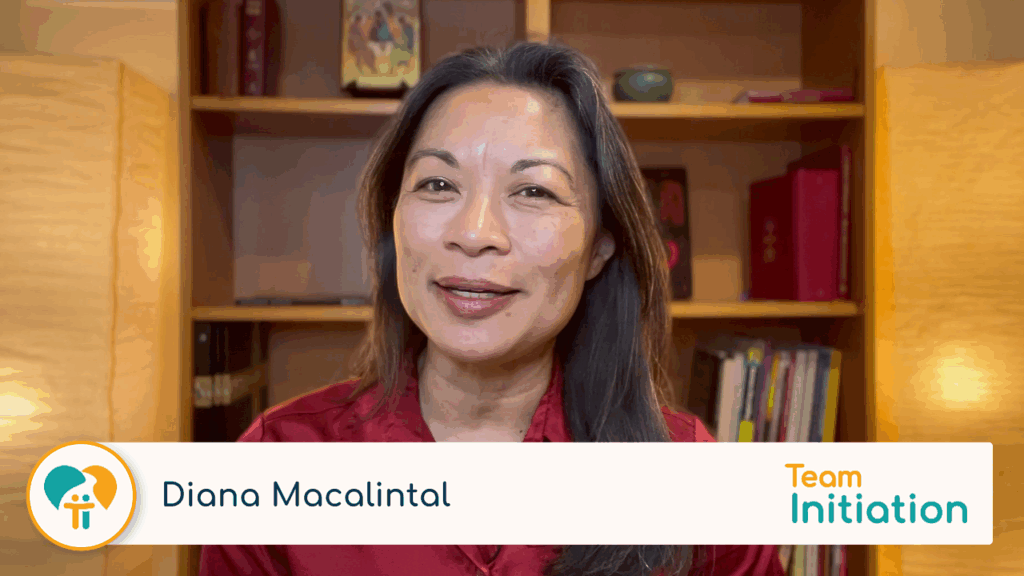
Many of you are probably beginning to plan for a celebration of the Rite of Acceptance. As you prepare your communities for this first public ritual of the RCIA, keep these best practices and things to avoid in mind.
Suggested best practices:
- Schedule and celebrate the Rite of Acceptance several times throughout the year, even during the Easter season. (See RCIA 18.3)
- Give each candidate for the Rite of Acceptance a sponsor who “has known and assisted the candidates” (RCIA 10). The sponsor should be a “gift” from the parish to the candidate. (Note: “Candidate” has two different definitions. In regards to the Rite of Acceptance, which is only for unbaptized persons, “candidate” refers to a person’s ritual role; that is, the candidate is the person who is the subject of a rite. In this context, it does not refer to a person’s baptismal status.)
- If the candidate for the Rite of Acceptance wants to provide his or her own sponsor, allow, if reasonably appropriate, for that person to act as a co-sponsor along with the sponsor provided by the parish.
- Rehearse the rite with the presiding priest or deacon, the sponsors, the acolytes, the music director/cantor, and any other assistants who will have roles to play during the rite (e.g., cross bearer, ushers). Do not rehearse it with those who will be catechumens, but help them prepare spiritually for the rite (see the next two suggestions).
- Prepare the sponsors and their candidates for the dialogue at the beginning of the rite (RCIA 50). Help them to respond from their heart. Their responses should be spontaneous, but not unprepared.
- If you want to give a personal cross as a gift to those who will become catechumens, instead of giving it to them during the rite, have their sponsors give them a cross at the time when the inquirer is discerned to be ready for the rite (see RCIA, 42). Use this giving of the cross before the rite as a way to help both the candidate and the sponsor spiritually prepare for the rite.
- Instead of giving catechumens a personal Bible as a gift during the rite, have their sponsors give them a Bible at the time when the inquirer is discerned to be ready for the rite, or even earlier as part of the precatechumenate period.
- Encourage the presider to sing the prayers of the rite.
- Several weeks before the rite, prepare the assembly to celebrate it through catechesis and reflection questions. If the assembly has not yet met the inquirers who will become catechumens, informally introduce them to the assembly several weeks before the rite so that the assembly can pray for them as part of the spiritual preparation for the Rite of Acceptance.
- Dismiss catechumens (adults and children). The dismissal is an important part of their formation.
- Pay attention to RCIA 48 and RCIA 60. The rite begins outside or at the entrance of the church. A “group of the faithful” gather with them outside (RCIA 48). Before the Liturgy of the Word, the celebrant invites all to “enter the church” (RCIA 60).
- Schedule the rite on a day when the readings are most connected to what is being communicated by the Rite of Acceptance itself, i.e., following Christ, hearing God’s word, picking up one’s cross, etc.
- Make sure the homilist focuses the homily on what just happened in the rite, connects it to the readings, and addresses the catechumens.
- Be sure the presider and the homilist (if it is a different person) knows the catechumens and a some of their stories of faith so he can speak genuinely to them in the rite and make his homily relevant to them.
- Keep an official record of the names of catechumens, their sponsors, the date they became catechumens, and the name of the presider at the rite. (See RCIA 46)
Practices to avoid:
- Don’t make the candidates for the Rite of Acceptance knock on the doors of the church. This is NOT in the rite and is very inappropriate to the rite and to the meaning of the ritual.
- Don’t schedule the rite on the First Sunday of Advent simply because it’s the beginning of the liturgical year. This parallels too much a “beginning of the school year” mentality. Also the First Sunday of Advent has a major focus of its own and often focuses on the “end times.”
- Don’t schedule the Rite of Acceptance on Sundays when additional events are happening in the Mass (e.g., the diocesan appeal talk, blessing of students, parish festival), or when there’s a visiting priest presiding. Look at the parish’s calendar for any conflicts of events.
- Don’t rehearse the rite with those who will become catechumens.
- Don’t instruct the sponsors and candidates for the Rite of Acceptance to respond to the dialogue in the rite (RCIA 50) with rote answers.
- Don’t make “air crosses” during the signing of the senses (RCIA 56).
- Don’t give a personal cross as a gift to the catechumens during the rite. This is an optional part of the rite (RCIA 64), and giving an individual cross tends to diminish the fact that the catechumens had already “received” the cross when their senses were signed. Instead, do this before or after the rite.
- Don’t give a personal Bible as a gift to the catechumens during the rite. This is an optional part of the rite (RCIA 64), and giving an individual Bible tends to diminish the fact that the catechumens had already “accepted” the Gospel when they stated they were ready to live the Gospel (RCIA 52) and when they heard the Scriptures for the first time as catechumens in the assembly of the faithful (RCIA 60-63). Instead, do this before or after the rite.
- Don’t dismiss baptized candidates; the norm is for any baptized person to remain in the assembly for the Liturgy of the Eucharist, even if they are unable to participate in Communion, since their principle role is to pray the Creed, the Universal Prayers (Prayers of the Faithful), and to join in the Eucharistic Prayer.
- Never dismiss sponsors with the catechumens.
- Don’t let the homilist ignore the catechumens or what just happened in the rite.
- Don’t give the script to the presider or the musician at the last minute. Work, plan, and rehearse it with them long before the day of the rite.
What are your best practices or cautions for the Rite of Acceptance? Please share them with us in the comments below.












After nearly 36 years of working with the RCIA in parishes and as Diocesan Director of the RCIA, I cannot disagree with you more about #9 in “things to avoid”. I find it inhospitable and rude to invite even the already baptized to remain for the Eucharistic feast if they are not able to dine with us. We would never do this in our homes when inviting guests; nor should it be done in the church. Just because they have been baptized in another christian tradition does not mean that they do not need to break open the Scriptures with the catechumens since conversion is ongoing. Baptism as infants (or even as adults) does not mean that “conversion to Christ” has taken place.
I agree with you 99% Father (only taking issue with your words of “inhospitable” and “rude” as being a bit harsh). Here at St. Joseph – Old Mission San Jose in Fremont, in the Oakland, California Diocese, we offer our baptized a choice of staying for the Liturgy of the Eucharist or accompanying the Catechumens to break open the Word. 100% of the baptized choose to be with the Catechumens (“somos juntos” as their RCIA Family) because they say they are being fed at the Table of the Word. This underlies the fact that many of the baptized come to us uncatechized and thoroughly unfamiliar with scripture, it’s meaning and applicability to everyday life. If being fed through the Word of God satisfies their hunger, then, “who am I to judge!”
Respectfully, Father, you couldn’t be more wrong!
Candidates are not dismissed because the Catholic Church accepts and respects the validity of their Baptism, and recognizes them as fellow Christians. Please read the Rite of Christian Initiation of Adults, it does not have a dismissal for Candidates in it, only one for Catechumens. Also #83-2 makes no mention of Candidates, only Catechumens. Also, the Rite of Acceptance concludes with a dismissal #67, makes no mention of Candidates, only Catechumens. The Rite of Welcome concludes with a prayer over the Candidates, but no dismissal of them. Only a dismissal of the entire assembly or the Liturgy of the Eucharist following the Rite. If a baptized candidate wishes to join dismissal, he/she may go, but they are not dismissed. It isn’t a matter of whether or not you feel that a person has experienced a level of conversion, it is because of their valid, trinitarian baptism in another faith tradition that give them a right to stay with the other members of the Body of Christ, just like any baptized person in Mass.
I agree with you Crysti. Baptism grants us the grace of becoming children of God and it allows and compels us to participate in mass even if we cannot participate in the eucharist. This is no different from any other baptized Christian who’s not in a position to receive Communion. Let’s remember that the baptized are obliged to attend mass every Sunday, but to receive Communion at least once a year as stated in the precepts of the Church.
One that thing that stood out to me when I first came to the US was how almost everybody came forward to receive Communion while in my country of origin a lot of people remained seated since they felt they were not prepared to receive this sacrament.
Thanks for this e-mail Nick. Since I have attended many of your workshops and read all your books, I can safely say we do “good practices”for our Rites of Acceptance and Welcome. I am retiring in spring, after we celebrate and initiate our catechumens presently journeying with us. Keep up the good work. I am “training”
a new person to take my place and have promised to help them.
Greetings to Dianna. God’s blessings.
Great advice Team!!!
I disagree with Rev. Sauer, i also think that the work of catechists (or priests) is critical in that phase. Teaching them to get ready and to understand why they are “not ready for Holy Communion” is vital for their re-journey towards seeing JESUS ALIVE at the Altar. Forms of bread and wine after consecration is not just a symbol but truly JESUS in all his SPLENDOR and BEAUTY. It is HEAVEN down in front of us. Wowww.
Also as noted they are already at work by joining everyone in the Eucharistic Prayer and offering prayers for new candidates.
Again, having JESUS in front of them ALIVE vs. heading out is more ever important to their faith.
Thanks for the great work.
God Bless
MA
Having been involved in RCIA since 1985, I agree with Fr. Sauer about dismissal for the previously baptized, however I present it as an invitation for them to gather in an intimate,prayerful setting to reflect with their brothers and sisters on what they just heard in the Liturgy of the Word. Most are eager to come, but for those who prefer to remain for the Liturgy of the Eucharist, I do not insist on dismissal.
Terry Zobel
If the Rite of Acceptance is done within Mass, is the Gloria and Collect said?
Hi Reyes,
The Rite of Acceptance replaces the opening rites of the Mass. So the Gloria is not sung and the Collect is not said. See RCIA 61.
Nick